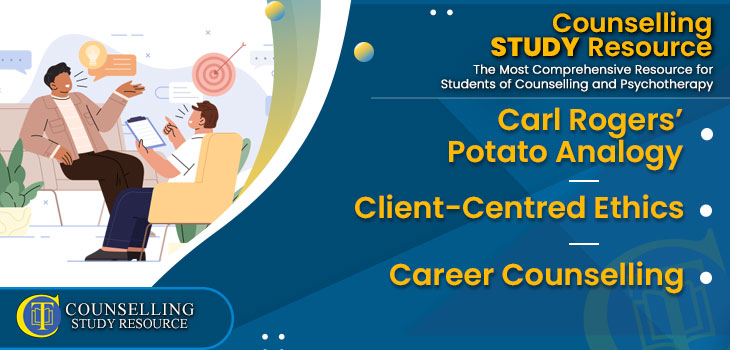See Counselling Skills Used in Real Sessions by Qualified Therapist
Real Sessions – Real Presentations – Real Skills
Gain the competence and confidence to use counselling techniques effectively!

In Episode 276 of the Counselling Tutor Podcast, your hosts Rory Lees-Oakes and Ken Kelly are back with this week’s three topics:
Carl Rogers’ Famous Potato Observation
Carl Rogers’ potato observation offers a new perspective for us to take into the therapy room. Listen as Rory and Ken discuss some of the main takeaways from this theory:

Real Sessions – Real Presentations – Real Skills
Gain the competence and confidence to use counselling techniques effectively!
When it comes to your sessions, it’s important to note you’re working within the means of your client. In this section, Rory and Ken talk about some things you might want to be mindful about when it comes to outcomes and limitations in therapy:

On-demand access to a rich lecture library covering theory, skills, and professional development for counselling students—Mapped to the UK awarding body criteria
“The Student Library has been BRILLIANT, I can’t recommend it enough!
It has been a lifeline in helping me prepare for practice and my first clients. If you’re considering it, go-for-it, it’s absolutely worth it!”
Kelly – Graduated and now in practice.
In this week’s ‘Practice Matters’, Rory speaks with retired American psychologist, Richard Rotberg, who’s written a book called Understanding and Managing Career Problems in Therapy.
The key points of this discussion on career counselling include:
Carl Rogers’ Famous Potato Observation

Get on-demand Certified CPD that is implementable in your practice
